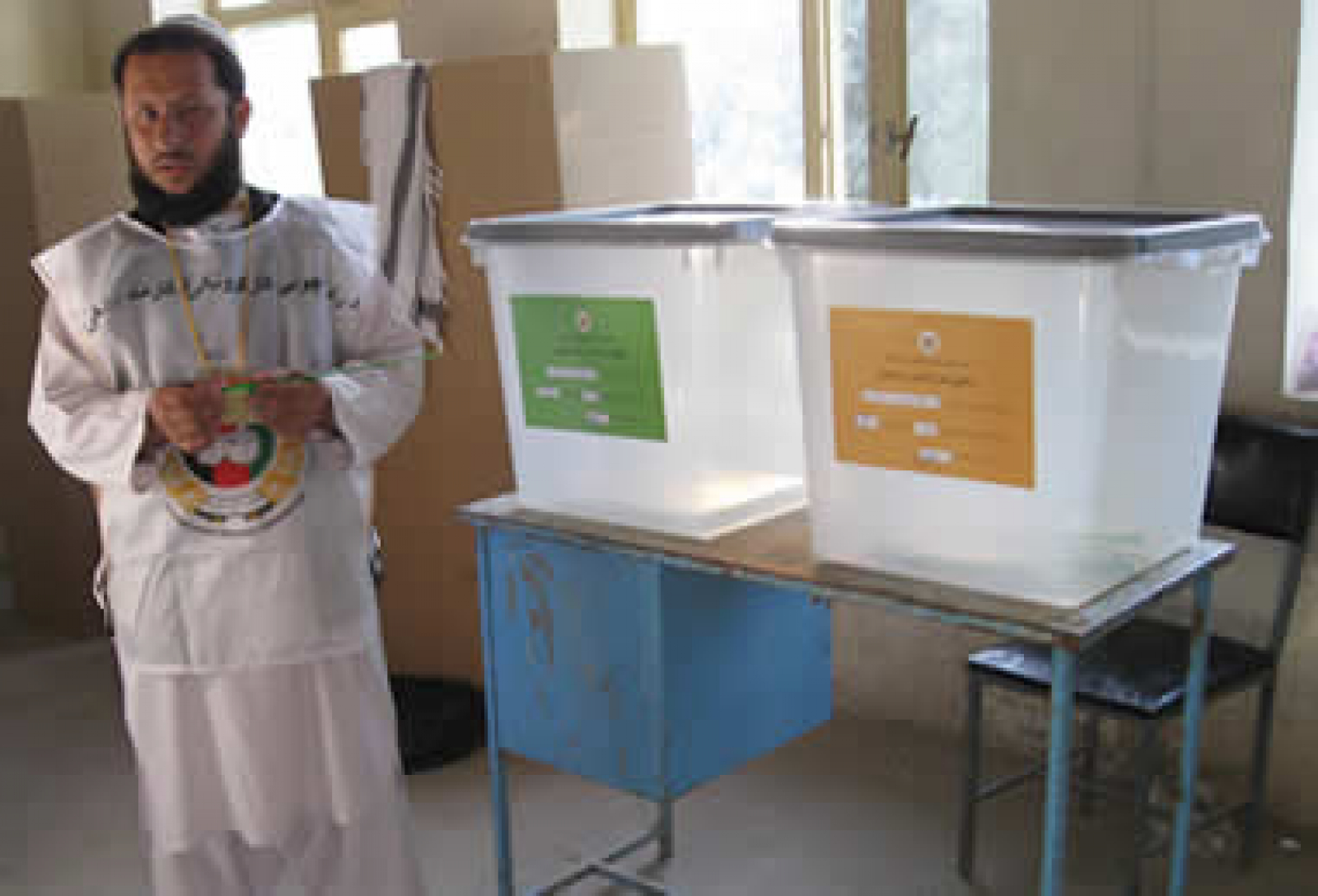
While the Afghan Independent Election Commission (IEC) announced on Nov. 2 that a presidential runoff is not required, the systematic and widespread fraud that deeply marred the 2009 Afghan electoral process remains unaddressed. A rigorous and impartial inquiry by noted international and Afghan experts concerning the failures in the 2009 election process is needed to reduce tensions, establish credibility for future Afghan elections and reinforce the legitimacy of the Afghan governing institutions and the effectiveness of international electoral assistance.
Afghans deserve a full account of the vulnerabilities that allowed the fraud to take place, identification of those who were responsible for the failures, as well as the fraud, and an appraisal of reforms that are required to prevent a recurrence in the 2010 parliamentary (Wolesi Jirga) and future elections. A formal review should not only examine the nature of flaws and failures, it should offer recommendations for reform that, if adopted, could secure authentic elections in the future and build Afghan confidence in the country’s political institutions.
A recent example of such an inquiry is the Independent Review Commission on Kenya’s 2007 flawed presidential election, commonly known as the “Kriegler Commission” (named after the Commission’s Chairman, former South African Constitutional Court Justice Johann Kriegler). Mediation by former UN Secretary-General Kofi Annan, which ended Kenya’s tragic post-election violence, led to the formation of that commission. The Kriegler Commission included noted Kenyan and international experts and had a broad mandate to examine all relevant actors and processes surrounding the elections and to recommend electoral reforms, including constitutional, legislative, operational and institutional aspects, as well as accountability mechanisms and other measures it deemed necessary. The Afghan people deserve a similar inquiry and related actions to guarantee that their will is respected in elections and genuine representative governance is ensured.
The IEC should thoroughly evaluate to what degree fraud may have affected Afghanistan’s provincial council elections, which were also held on Aug. 20. Afghan electoral contestants and domestic election monitors documented fraud in the Aug. 20 polls, and the Electoral Complaints Commission reviewed over 2,000 complaints and examined a sample of suspicious ballot boxes, finding that no presidential candidate passed the 50 percent threshold. That led to the IEC’s determination that a runoff was required. Some actions were taken to reduce the potentials for fraud in the runoff, scheduled for Nov. 7, although a full stocktaking and major reforms were not carried out. Dr. Abdullah Abdullah withdrew from the election process, stating that safeguards for the runoff were inadequate to ensure electoral integrity.
If decisive actions are not taken to tackle the corruption in the 2009 election process, the 2010 parliamentary and other elections will remain at risk. In that case, the ability to govern the country will be undermined by the very processes that are designed to provide the legitimacy of government. Unless reforms are identified and instituted, the credibility of, and public confidence in Afghan elections and governance will likely erode further.
Political will among Afghans and the international community is required for an effective mandate and adequate resources to produce a report and recommendations that will benefit the 2010 parliamentary and future elections. The time needed for the review should not preclude necessary, immediate changes, including measures that would ensure the impartiality and effectiveness of the IEC. The scheduled 2010 elections should remain on track as the review progresses.
NDI is continuing its long-term observation and analysis of the Afghan election process. The Institute also has conducted programs in Afghanistan to promote increased participation by women in the political process, support domestic election monitors and train candidate polling agents. NDI’s election observation mission began in July 2009 with long-term observers and more than 100 national and international observers from 11 countries for the Aug. 20 polls. The Institute will issue a final report, including further recommendations, in the near future.
Read NDI's Afghanistan Elections Updates»
In congressional testimony, NDI stresses election process in Afghanistan»
Pictured above: An Afghan poll worker on election day, Aug. 20
Published November 3, 2009


